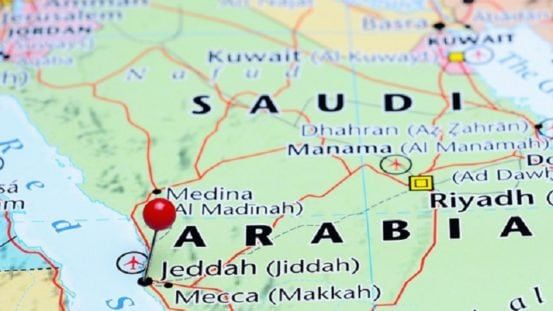MSCI announced that as of June 2019, the MSCI Saudi Arabia Index will represent a pro forma basis weight of approximately 2.6% in the EM Index with 32 securities. It will also be included in the MSCI ACWI Index and other global and regional indexes.
The decision, which came as part of MSCI’s semi-annual index review, follows the implementation of regulatory changes in the Saudi Arabian equity market which opened to international institutional investors.
However, investors remained nonchalant about it as Tilney’s managing director Jason Hollands said the impact on emerging market funds will be “marginal”, as market cap weighted exposure to Saudi and Argentinian stocks will be very small in the context of China, South Korea, Taiwan and India.
Likewise, Darius McDermott, managing director at Chelsea Financial Services, opposed this as he said the MSCI inclusion is “not super exciting news” and the inclusion of Saudi Arabia is likely to be based on the “heavily discussed floatation” of part of Aramco, the country’s national oil.
Bassel Khatoun, managing director, Frontier and MENA, Franklin Templeton Emerging Markets Equity said the decision will attract a lot more foreign investment in the country.
“With $1.9trn of funds tracking MSCI’s EM index, the 2.6% that Saudi will initially command is likely to result in equity flows of approximately $40bn,” Khatoun said.
Argentina
Meanwhile, the MSCI Argentina Index has also been reclassified from Frontier Markets to EM status, following investors’ confidence in the country’s ability to maintain current equity market conditions.
Hollands added: “The effect on Frontier market fronts is a lot more dramatic, as Argentina represents almost 20% of the Index, which has already been profoundly reshaped in recent years by the upgrading of UAE and Qatar to EM status.
“In my view, rigidly defined frontier market funds are progressively becoming less appealing.”
However, McDermott argued that the move of Argentina from EM would indicate that country’s prospects are improving and their GDP per capita has improved.
He said: “It’s a change in the universe but frankly, it doesn’t make that much difference. The fact that Saudi Arabia may be coming in to the EM index obviously means that it broadens the index and gives fund managers a bit more choice.
“But on a country by country basis, I don’t think it makes a huge impact because fund managers have different styles.”
Additionally, in the announcement, Sebastien Lieblich, managing director and global head of equity solutions, said the inclusion would mean international institutional investors are able and ready to access and operate in these markets.
“International investors were impressed by the speed of change in the accessibility of the Saudi Arabian equity market and the level of commitment that the Capital Market Authority (CMA) and the Saudi Stock Exchange have demonstrated,” he said.
“Their expectation now is that the current privatisation effort in Saudi Arabia will continue to grow the investable opportunity set available to them and hence, all other things being equal, contribute to an increased weight of Saudi Arabia in the MSCI Emerging Markets index in the future.”







